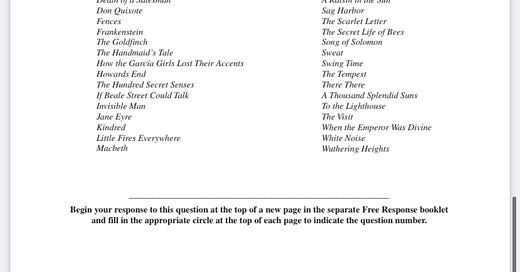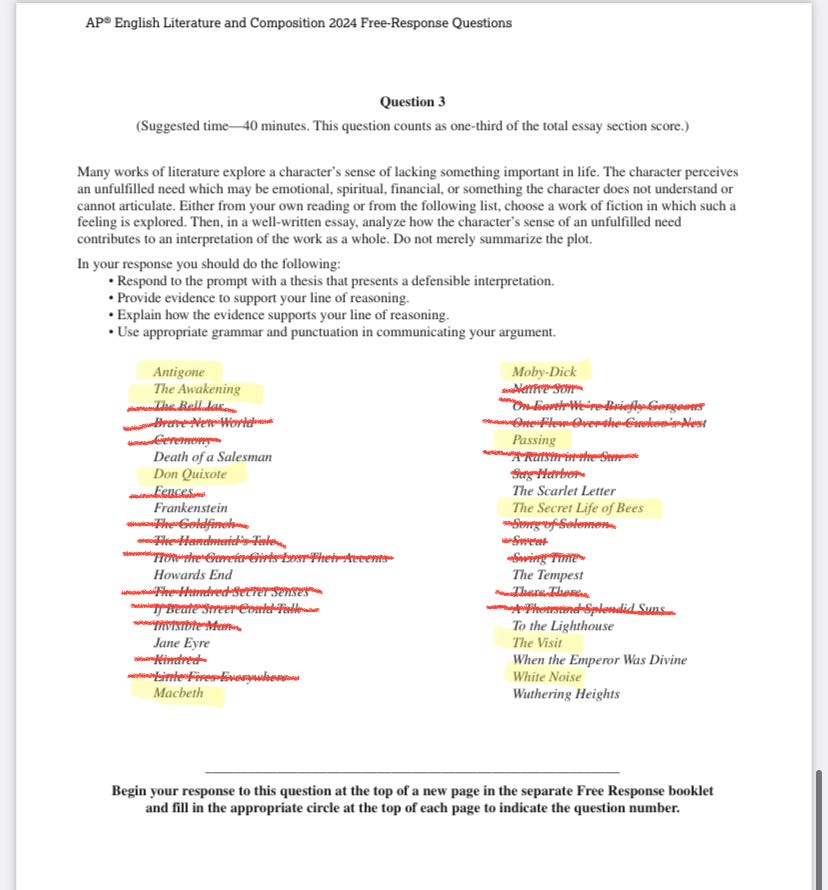Conroe ISD Holds a Warning for Fort Bend, Other Districts
While Conroe ISD walks back its book removal policies and procedures, Fort Bend ISD prepares to adopt even more extreme policies.
The “Mama Bears” of Conroe ISD no longer want to talk about books.
After Misty Odenweller, Tiffany Nelson, and Melissa Dungan swept onto the district’s Board of Trustees on a campaign promising to “protect the innocence” of the district’s students, the three started ratcheting up restrictions on the district’s libraries and classroom collections. They voted to change the district’s library and instructional materials polices, they repeatedly voted to remove or restrict challenged books during Level 3 hearings, and they questioned the district’s use of Scholastic Book Fairs. Odenweller even brought to district administrators lists of books that then underwent “internal reviews,” with most of them being removed.
The three have been on the board for nearly two years, and in that time Conroe ISD has removed more books than any other Houston-area district. And with those removals have come anger from students and parents, frustration from teachers and librarians, and loads of negative press. Their efforts came to a head last Spring, when hundreds of copies of well-regarded books were recalled from classroom collections and boxed up to be sent to auction. After community members filed grievances to get some of the books restored to shelves, the Level 3 hearing at May’s board meeting laid bare the absurdity of the district’s book policies and procedures. “What are we doing here?” asked trustee Stacey Chase. “These are classics.”
On Tuesday, the board started the process of cleaning up the mess. Specifically, trustees pointed out that, because of all of the district’s book removals, students in AP Literature don’t have access to books they could use to prepare for their end-of-year exam. Trustees discussed providing these books to students on an individual basis, with parental opt-in. But they had to wrestle with a problem: how can the district provide those texts to students when it has already (wrongly) judged them to be educationally unsuitable?
Multiple trustees expressed frustration with the current policy. Board president Skeeter Hubert, who has voted with the “Mama Bears” in the past, suggested that the district has removed books it shouldn’t have. “I believe that there is a difference between porn,” he said, “and discussing sensitive issues, like in The Color Purple.” Trustee Datren Williams pointed out that the current book removals are disproportionately affecting books that reflect minority and LGBTQ experiences. And Chase said that she will present suggestions for revisions to the policies.
During all this discussion, the Mama Bears were mostly quiet, until Nelson finally interjected, “I’d rather talk about something other than books.”
“Oh. That’s a first,” quipped Chase.
…
But this isn’t a post about Conroe ISD.
The day before the meeting in Conroe, another Houston-area district, Fort Bend ISD, discussed potential changes to its library book and instructional resource policies. These proposed changes go even beyond the policies Conroe ISD is now walking back. If adopted, they would be among the most extreme in the state.
Not only do the policies give sole discretion to the superintendent to remove books or overrule book committee decisions, they also contain selection criteria that manage to be both restrictive and dangerously broad.
Specifically, EFB Local would exclude from the district:
books that advocate or promote racial, ethnic, sex-based, or religious stereotypes
books that advocate or promote unlawful activity, including the illegal use of alcohol, tobacco, or illegal drugs by minors
books that promote sexual activity among minors or contain graphic images or explicit descriptions of sex acts or simulations of sex acts.
Maybe you think those sound like reasonable provisions. But think about literature—really think about the books you read in your high school English classes—and you’ll understand how misguided those restrictions are. That’s especially true given that the policy doesn’t define what it means by “advocate or promote” and there is no provision that requires books be read in their entirety or that context of controversial passages be taken into account.
Does Romeo and Juliet promote sexual activity among minors? Does The Great Gatsby promote unlawful activity? “A Letter from Birmingham Jail” certainly does.
If you think those books would never be removed because doing so would defy common sense, you haven’t been paying attention to what’s happening in Texas. Conroe ISD banned Brave New World, Slaughterhouse-Five and The Color Purple from all of its classrooms; a group of extremist pastors is traveling the state demanding that districts remove The Picture of Dorian Gray; Native Son is on the chopping block across the state, too.
Fort Bend’s policy would put so many books at risk it’s hard to fathom. And, as in Conroe, the biggest detriment will be to students in advanced literature courses.
To help you visualize how bad the policy will be, this is Free Response Question 3 from Set 2 of this year’s AP Literature exam. The format of question 3 is the same every year: Students are asked to analyze a work of literature according to a theme, and then given a list of texts that relate in some way to that theme. Students don’t have to write about a book from the list, but the list is a helpful aide and students are always relieved to see familiar texts there. And the list is also a good guide for teachers when determining which texts to assign, or to recommend to eager students looking to extend their learning.
I’ve applied book policies to these lists before—in 2023, for example, I went through and struck from the 2022 test all the books that would have been removed from Texas schools if HB900’s vendor ratings had been allowed to take effect. Between a quarter and half of books on any given year would be forbidden by restrictive book policies like HB900. But I’ve never seen any policy decimate the list like Fort Bend ISD’s proposed policies do.
In the image below, I’ve crossed out the books that violate some facet of FBISD’s proposed EFA or EFB Local policies. These aren’t marginal cases; some have been removed from other districts and most of them have passages that could shock readers when taken out of context and read aloud angrily at a school board meeting.1
The books highlighted in yellow are judgement calls. Antigone, for example, is probably okay, but its protagonist defies the king’s order to obtain a proper burial her brother. Does that promote unlawful activity? I don’t know. And there are no passages in Passing that stand out as objectionable, but the whole book is about what we now call white privilege. Does that promote racial stereotypes? What about Don Quixote and Moby-Dick? I can’t imagine removing either one, but I can point to passages in both that clearly do promote stereotypes.2 Again, I don’t know. But, as a teacher, I do know that if I were in this district I’d be circumspect about how I’d talk about any of those books.
These policies would dramatically hinder the study of literature in Fort Bend ISD. And Fort Bend doesn’t have any reason for adopting these extreme policies. In July, the Texas State Library and Archives Commission released a model policy that ensures districts are in line with both the law and the mandatory state library standards. Notably, it gives districts the ability to remove books that are pervasively vulgar and educationally unsuitable without proscribing books that students need to succeed in advanced literature courses. Fort Bend ISD could simply take its selection criteria from this model policy.
The board will vote on the policies tonight. If it approves them, board members should look to Conroe ISD to see what to expect next.
Discussing the policy at last week’s meeting, trustee Angie Hanan pointed out many of the policies flaws. Then she asked her fellow trustees about the consequences of adopting them: “Are we going to be on the news?”
The answer is obvious: Yes.
If your response to this is, “XYZ doesn’t promote racial stereotypes/unlawful activity/sexual activity! Its message is the opposite!” then you’re applying a level of thoughtfulness and consideration that is generally lacking in questions of book removals in Texas. Remember, there is nothing in FBISD’s proposed policies that requires books to be read in their entirety or for passages to be taken in context.
This spreadsheet details the rationale that could get any of these books excluded from FBISD under the proposed policies. Where possible, I’ve also included passages that could get books pulled—maybe against my better judgement, since I don’t want to give the book banners any more ammo.





